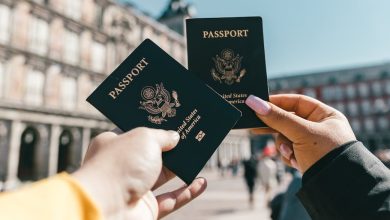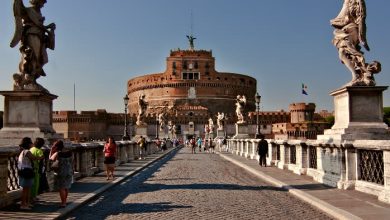Things to Know Before You Go to Rome
When embarking on a journey to the enchanting city of Rome, preparation is key to ensuring a smooth and memorable experience.
From its rich history to its culinary delights, Rome offers a unique blend of old-world charm and modern allure.
In this guide, we’ll delve into essential insights that will help you make the most of your Roman adventure.
1. Visa and Documentation
Before you set foot in Rome, it’s crucial to check the visa requirements for your country.
Ensure your passport is valid for at least six months beyond your intended departure date. Research and familiarize yourself with the entry regulations to avoid any unexpected hassles upon arrival.
2. Weather Considerations
Rome experiences a Mediterranean climate, characterized by hot, dry summers and mild winters. Pack accordingly with lightweight, breathable clothing for the summer months and layers for the cooler seasons. Don’t forget comfortable walking shoes, as exploring the city on foot is one of the best ways to soak in its beauty.
3. Language and Communication
While Italian is the official language, many Romans in the hospitality industry speak English. However, it’s courteous to learn a few basic Italian phrases, which can go a long way in fostering connections with the locals.
4. Currency and Payment
The official currency in Rome is the Euro (EUR). It’s advisable to carry some cash for small purchases, as not all places accept credit cards. Inform your bank about your travel plans to avoid any issues with your cards while abroad.
5. Public Transport and Navigation
Rome boasts an extensive public transportation system, including buses, trams, and the metro. Consider purchasing a Roma Pass, which offers unlimited access to public transport and discounts on several attractions. Familiarize yourself with the transport routes and schedules to navigate the city seamlessly.
6. Historical Sites and Etiquette
Rome is a treasure trove of historical landmarks such as the Colosseum, Roman Forum, and Vatican City. Respect the cultural significance of these sites by following proper etiquette, such as covering your shoulders and knees when visiting religious sites.
7. Dining Etiquette and Culinary Delights
Italians take their food seriously, and dining is a cherished ritual. Familiarize yourself with Italian dining customs, such as avoiding ordering a cappuccino after 11 AM.
Indulge in local delicacies like pasta, gelato, and traditional Roman pizza, while savoring each bite like a true connoisseur.
8. Safety Precautions
Rome is generally a safe city for travelers, but it’s wise to take precautions. Keep your belongings secure, especially in crowded areas, and be cautious of pickpockets.
Save emergency numbers on your phone and have a copy of important documents in case of unforeseen circumstances.
9. Tipping and Service Charges
Tipping in Italy is not as common as in some other countries. Service charges are often included in the bill, but it’s customary to leave a small amount of change or round up the bill as a gesture of appreciation for excellent service.
10. Booking Tours and Tickets in Advance
To make the most of your time in Rome and avoid long lines, consider booking tickets for popular attractions like the Vatican Museums, Colosseum, and Sistine Chapel in advance.
This will help you skip the queues and have a more seamless experience, allowing you to focus on immersing yourself in the city’s wonders.
11. Cultural Sensitivity and Dress Code
While Rome is a cosmopolitan city, it still holds strong to its cultural norms.
Dress modestly when visiting religious sites and dress codes, and avoid wearing revealing clothing.
Also, be aware that public displays of affection may be frowned upon in certain places.
12. Local Festivals and Events
Research local festivals and events that might be taking place during your visit to Rome.
These celebrations can provide you with a unique opportunity to experience the city’s cultural vibrancy, whether it’s a traditional religious festival, a music concert, or an art exhibition.
13. Time Management
Rome is a city brimming with attractions, so effective time management is crucial.
Plan your days strategically to group nearby sites together, optimizing your exploration while minimizing travel time.
Don’t forget to allocate some leisure moments for spontaneous discoveries and relaxation in charming cafes.
14. Electrical Outlets and Adapters
Italy uses Type F electrical outlets, so make sure to pack the appropriate plug adapters for your electronic devices.
This will ensure you can keep your devices charged and stay connected during your stay.
15. Health and Medical Considerations
Carry a small first aid kit with essential items such as adhesive bandages, pain relievers, and any prescription medications you may need.
Familiarize yourself with the location of nearby pharmacies and medical facilities, just in case you require medical assistance.
16. Understanding the Siesta Culture
Many shops and businesses in Rome observe a siesta break in the afternoon, usually between 1 PM and 4 PM.
During this time, some shops, especially smaller ones, may close. Plan your activities around this cultural practice to avoid disappointment.
17. Respect Local Customs
Take the time to learn about Italian customs and behaviors to ensure you’re respectful and considerate as a visitor.
For instance, refrain from raising your voice or using overly expressive gestures in public spaces, as Italians tend to value a more reserved demeanor.






